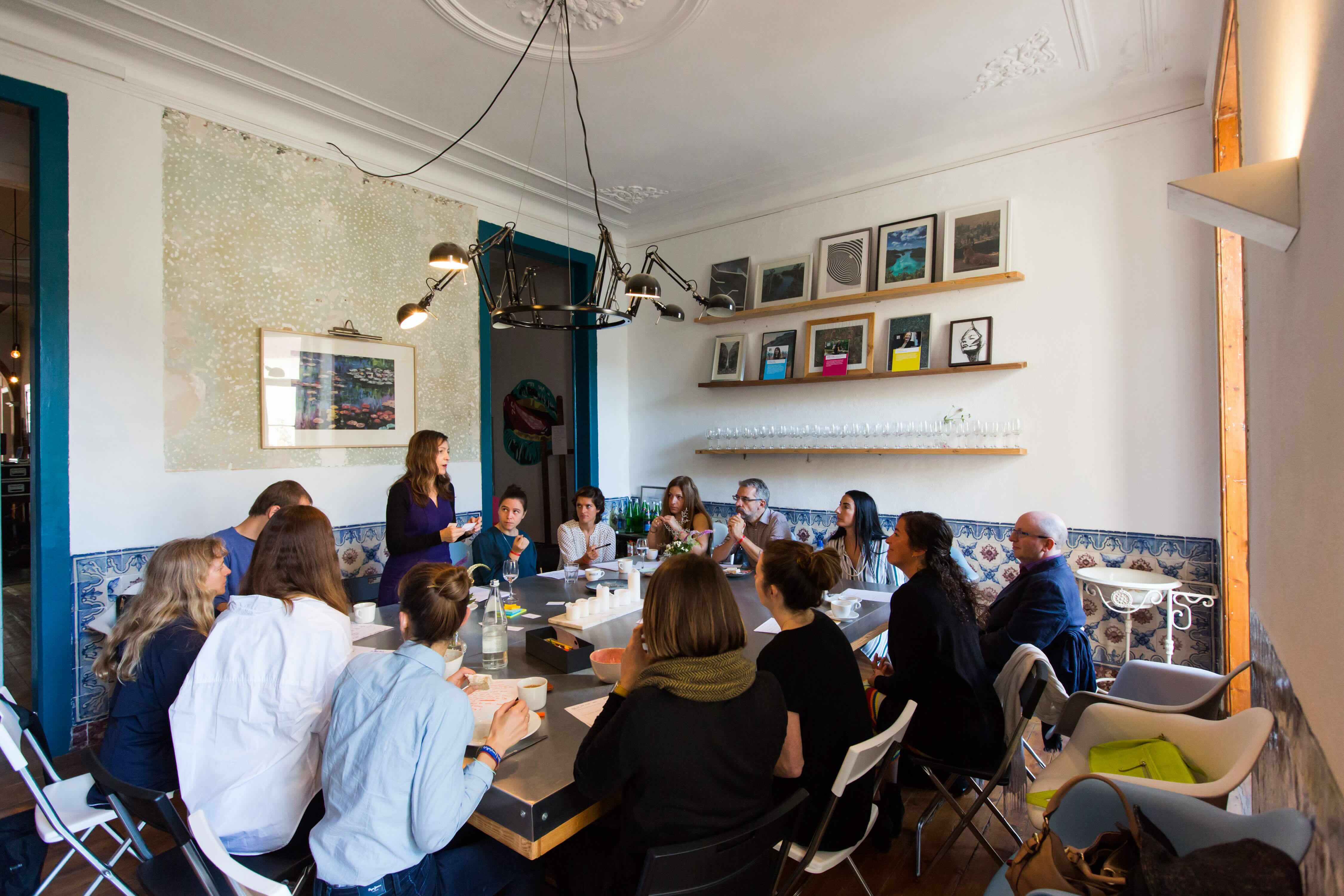Teaching
Teaching the next generation of designers and researchers.

Creating a Human Future for Technology
Our life with technology is complicated. Technology collects our secrets, it bears witness to our everyday actions, and it circumscribes our relationships. Yet somehow, it’s still radically insufficient for our messy, beautiful, emotional reality. Now, more than ever, we need technology that respects what it means to be human. The only way forward is to invite creative exploration, question assumptions, and learn together.
Academic Classes
Emotional Design
Designing for emotion is more than simply adding a dash of delight or driving engagement by rousing strong feelings. The next phase of emotional design is poised to take on the complexity that comes with lives that are increasingly digital. The class begins with design psychology—motivation, trust, belonging, and emotion regulation. Then the focus is on using design to evoke emotions with established practices, emotional affordances, and design interventions. Finally, designs are assessed for emotional resonance using the latest industry techniques.
Practical Ethnography
Empathy is more than just a step in the process. The way to understand how people accomplish tasks, meet their goals, and integrate new technologies into their lives is through exploratory research. By borrowing methods from the field of anthropology, such as participant observation, in-depth interviews, and diaries, it's possible to get a rich portrait of how people live with products. Rather than designing for people, in this class we design with them. The class culminates in co-creation sessions where new concepts are developed together.
Speculative Design
Speculative design aims to address long-term personal and societal issues, both critical and hopeful. The reason design is so crucial in thinking about the future is because it can actually inspire people to contemplate the issues from a new perspective. In this class, a range of speculative methods help us to develop products and stories describing various futures. This includes looking at other fields that speculate about futures, such as fiction, film, and art, which have a long tradition of imagining alternative futures.
Advanced User Research
User research is more than usability testing (as important as that is). This course focuses on advanced evaluative research methods like eye tracking, biometrics, digital analytics, and competitive benchmarking. Formulating metrics for success and running studies with real data and a range of tools create a clearer picture of what works best for people and what doesn't. The course concludes by presenting results using a range of methods.
Sprints, Workshops, and Masterclasses
The UX of Emotional AI
AI is already defining the next era of digital products, and designers have an urgent role to play. As is it, designers need to think about how to create experiences that are active partners to users, but also sensitive and even discreet. When AI can detect human emotion, UX becomes more complicated. Learn how design can help balance AI's opportunities and limitations.
Designing with Affective Computing
The future has feelings. Feelings we can detect, sort of. Feelings we only feel #becauseinternet. Feelings that make us a bit uncomfortable, mostly because we don't have a way to design with emotional intelligence. Not yet. This workshop looks at theories of human emotion, the latest tools in emotion artificial intelligence, and new techniques to combine human and artificial emotional intelligence.
The Ethics of AI and Emotion
Ethics efforts are focused on artificial intelligence but haven't given due consideration to emotional artificial intelligence. This debrief looks at special considerations for emotion AI and ethics, with guidelines and techniques to stress test your emotionally intelligent tech.
